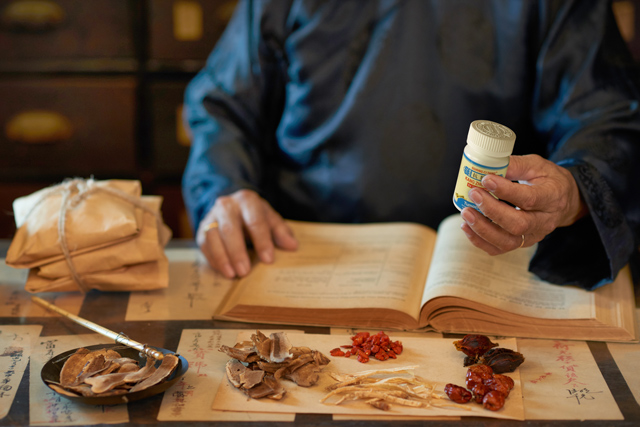In today’s fast-paced and demanding world, stress has become a prevalent issue affecting many people’s physical, mental, and emotional well-being. Traditional Chinese Medicine (TCM) offers a holistic approach to managing stress by focusing on restoring balance and harmony within the body. By addressing the root causes of stress and promoting overall well-being, TCM provides valuable tools for managing and reducing stress levels. In this article, we explore the principles and practices of TCM that can help restore harmony and effectively manage stress in our modern lives.
Understanding Stress from a TCM Perspective:
In TCM, stress is seen as an imbalance that disrupts the body’s Qi (vital energy) flow and affects multiple organ systems. Emotional stress, lifestyle factors, and external influences can contribute to this imbalance, leading to a variety of physical and emotional symptoms. TCM views stress as a manifestation of disharmony and aims to rebalance the body’s energy to restore overall well-being.
Principles of TCM for Stress Management:
- Qi and Energy Flow: TCM recognizes the vital importance of maintaining a smooth and balanced flow of Qi throughout the body. When stress disrupts this flow, it can lead to stagnation or deficiency in specific organs. By promoting the free flow of Qi, TCM helps release tension, reduce stress, and restore balance.
- Yin and Yang Balance: TCM emphasizes the balance between Yin (calming and nourishing) and Yang (active and energizing) energies. Chronic stress often leads to an imbalance between these forces, resulting in symptoms such as anxiety, insomnia, and fatigue. TCM aims to restore the Yin-Yang equilibrium to support overall well-being.
- Organ Systems: TCM recognizes the interconnectedness of organ systems in managing stress. The Liver, in particular, is associated with the smooth flow of Qi and emotions. When the Liver is imbalanced, it can lead to irritability, anger, and other stress-related symptoms. By supporting the Liver and other affected organs, TCM helps manage stress at its root.
Practices for Stress Management in TCM:
- Acupuncture: Acupuncture is a key component of TCM that involves the insertion of fine needles at specific points along the body’s meridians. Acupuncture helps regulate Qi flow, promote relaxation, and alleviate stress-related symptoms. It can be particularly effective in reducing anxiety, improving sleep quality, and restoring overall balance.
- Herbal Medicine: TCM incorporates a wide range of herbal remedies to address stress-related imbalances. Adaptogenic herbs, such as ginseng and rhodiola, are commonly used to support the body’s resilience to stress and enhance energy levels. Other herbs with calming properties, such as chamomile and lavender, can help reduce anxiety and promote relaxation.
- Mind-Body Practices: TCM emphasizes the mind-body connection in managing stress. Practices such as Qi Gong, Tai Chi, and meditation are employed to cultivate inner calm, improve focus, and reduce stress. These practices help regulate the flow of Qi, calm the mind, and promote a sense of balance and well-being.
- Dietary and Lifestyle Recommendations: TCM recognizes the impact of diet and lifestyle on stress levels. Dietary recommendations may include consuming nourishing foods that support the body’s energy, such as whole grains, fruits, and vegetables. Lifestyle recommendations may include stress reduction techniques, adequate rest, regular exercise, and a balanced daily routine.
Incorporating TCM for Stress Management:
It is important to consult with a qualified TCM practitioner to receive personalized care for stress management. They will assess your individual needs, identify specific patterns of imbalance, and develop a tailored treatment plan that incorporates acupuncture, herbal remedies, and lifestyle recommendations. Integrating TCM practices into your daily routine can help restore balance, reduce stress levels, and promote overall well-being.

Traditional Chinese Medicine provides a holistic and time-tested approach to managing stress in our modern world. By addressing the underlying imbalances and restoring harmony within the body, TCM offers valuable tools for stress management. Incorporating practices such as acupuncture, herbal medicine, mind-body techniques, and lifestyle adjustments can help reduce stress levels, promote relaxation, and enhance overall well-being. Embracing the principles of TCM allows us to navigate the challenges of modern life with greater resilience, balance, and harmony.









